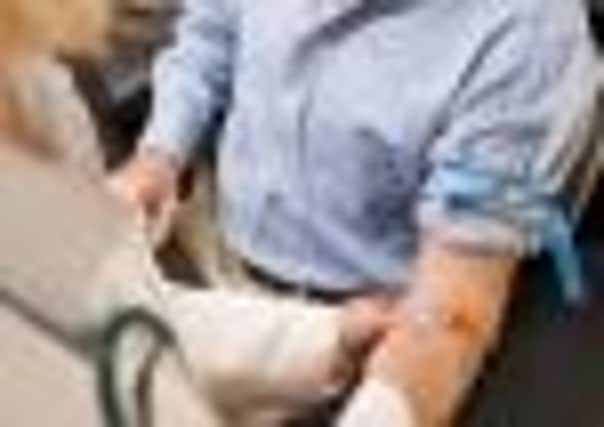Olympics will bring sweat and tears, but need more blood


Ahead of the Olympics, they need to boost blood supplies by 30 per cent to help deal with potential emergencies when an estimated 1.2 million spectators and 16,000 athletes descend on London.
Giving blood is seen as a good, selfless act – yet only four per cent of the population actually do it. Likewise, nearly everyone in the UK believes the gift of life through organ donation is the right thing to do – yet less than a third of people are on the Organ Donor Register. But with National Transplant Week starting on July 9, there's a huge push to recruit more organ donors and blood donors.
Advertisement
Hide AdAdvertisement
Hide AdWhile 96 per cent of people are in favour of organ donation, only 30 per cent have actually joined the Donor Register – and many who've signed up haven't told their loved ones they've done so. Plenty of those who aren't on the register but would still like to donate also haven't told their family and friends their wishes – adding up to a huge shortfall in would-be donors.
Around 7,600 people are on the UK transplant list and it's estimated that as many as 10,000 need a transplant every year.
But a thousand of them – that's three a day – die while waiting for an organ. And although more than 90 per cent of families will agree to donation if a loved one is registered and has discussed their wishes, this drops to 40 per cent if wishes aren't known in advance.
Anthony Clarkson, assistant director of organ donation at NHSBT, says: “We know that the vast majority of people support organ donation, but only a third of people have got round to signing up on the register, probably because they're very busy and they think they're not going to die yet so they've got a bit of time.”
Advertisement
Hide AdAdvertisement
Hide AdHe says that people talking about their donation wishes is almost as important as signing up to the register, and stresses: “Pass the organ donation message on to your family so they know your wishes, and pass it on to your friends, so they'll sign up too.”
Consultant transplant surgeon Professor Christopher Watson, president of the British Transplantation Society, says that less than half of the people who need a transplant in the next year will get one because of the shortage of organ donors. National Transplant Week is about celebrating the gift that organ donors make, and their families’ courage.
“In the middle of their own tragedy, they’re able to think of others, to give a stranger a chance of life, something their loved one has just been denied,” he says.
“Their only comfort is the thought that some good has come out of their own loss.”
Advertisement
Hide AdAdvertisement
Hide AdBlood donors don't have to die to donate – and now could be the time to start giving, as part of an Olympic effort to boost blood stocks. Ironically, the anticipated increased demands brought by extra visitors to London is expected to be compounded by low numbers of regular donors coming forward due to disruption and distraction caused by the Games.
All blood types are needed, but there is a particular requirement for O-donors, as the blood types of those visiting London may not be known, and if they need a transfusion, blood type O is most likely to be used because it can be transfused into any patient regardless of their own blood group.
NHSBT spokesperson Jon Latham points out that during last month's Diamond Jubilee celebrations demand for type O- blood was six per cent higher than the number of donations.
But only seven per cent of the eligible population have O- blood, and just 139,000 of them are donors.
One pint of donated blood can save up to three lives.
Advertisement
Hide AdAdvertisement
Hide Ad"We're appealing to this elite group of blood donors to help us prepare for the unprecedented demand and to make sure our health services have the essential stocks they need," he says.
To join the organ donor register, visit www.organdonation.nhs.uk or call 0300 123 2323. Information on blood donations: www.blood.co.uk